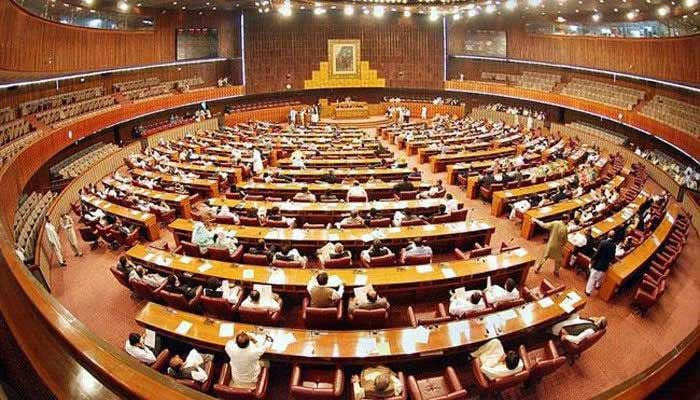Indifferent leaders
Message from the public is loud and clear: people are losing hope
Why does Pakistan keep failing? This question echoes not just in the minds of concerned citizens but also in the sobering statistics that rank the country consistently low across global indices – governance, economic development, human rights, press freedom etc. Despite having a youthful, energetic population, Pakistan continues to lag behind many of its regional and global peers. The problem is not the potential of the people, but the persistent failure of leadership. A recent report by the Pakistan Institute of Legislative Development and Transparency (Pildat) has put a spotlight on the Senate’s underwhelming first year, offering a sobering assessment of how deep-rooted neglect and political expediency continue to chip away at the country’s democratic institutions. Among the most troubling revelations is the continued vacancy of 11 Senate seats from Khyber Pakhtunkhwa.
The report also raises serious concerns about the controversial passage of the 26th Amendment, pointing out that the process was riddled with allegations of coercion and corruption. Rather than being a chamber of debate and accountability, the Senate has seen a sharp decline in private members’ bills and a disturbing increase in the use of ordinances – an authoritarian trend previously popularised by the PTI regime and now emulated by the current government. Add to this a drop in working hours, consistent quorum issues and dismal attendance by the Leader of the House. In a country where leaders treat governance as an afterthought, trust in democratic systems inevitably erodes. Opposition politics, rather than being a check on power, often devolve into campaigns of disruption, with rival parties seeking to sabotage rather than strengthen governance. This culture of zero-sum politics leaves the door wide open for those who benefit from instability. The result? A nation stuck in reverse.
Pre-election surveys in 2024 revealed record-high levels of public pessimism. In late 2023, 70 per cent of Pakistanis believed that their local economic conditions were deteriorating. The message from the public is loud and clear: people are losing hope. They are tired of being told to wait, of hearing promises that are never fulfilled. And increasingly, they are looking elsewhere with many of Pakistan’s brightest minds and most skilled workers leaving the country. Pildat’s recommendations for reform – reducing ordinance use, filling vacant seats, ensuring attendance, enforcing quorum rules and empowering committees – are not revolutionary demands. They are basic expectations in any functioning democracy. That our lawmakers need to be reminded of such fundamental duties is a damning indictment of our political culture. We cannot afford more wasted years. We cannot afford leaders who treat parliament as a formality. If our political class continues to show indifference to the lives and struggles of ordinary Pakistanis, they will eventually find themselves presiding over a nation too broken to govern. Let's stop shooting ourselves in the foot.
-
 Why Kate Middleton, Prince William Opt For ‘show Stopping Style’
Why Kate Middleton, Prince William Opt For ‘show Stopping Style’ -
 Here's Why Leonardo DiCaprio Will Not Attend This Year's 'Actors Award' Despite Major Nomination
Here's Why Leonardo DiCaprio Will Not Attend This Year's 'Actors Award' Despite Major Nomination -
 Ethan Hawke Reflects On Hollywood Success As Fifth Oscar Nomination Arrives
Ethan Hawke Reflects On Hollywood Success As Fifth Oscar Nomination Arrives -
 Tom Cruise Feeling Down In The Dumps Post A Series Of Failed Romances: Report
Tom Cruise Feeling Down In The Dumps Post A Series Of Failed Romances: Report -
 'The Pitt' Producer Reveals Why He Was Nervous For The New Ep Of Season Two
'The Pitt' Producer Reveals Why He Was Nervous For The New Ep Of Season Two -
 Maggie Gyllenhaal Gets Honest About Being Jealous Of Jake Gyllenhaal
Maggie Gyllenhaal Gets Honest About Being Jealous Of Jake Gyllenhaal -
 'Bridgerton' Star Luke Thompson Gets Honest About Season Five
'Bridgerton' Star Luke Thompson Gets Honest About Season Five -
 Prince William On Verge Of Breakdown Because Of 'disgraced' Andrew
Prince William On Verge Of Breakdown Because Of 'disgraced' Andrew -
 Tig Notaro Reflects On Oscar Nod For 'Come See Me In The Good Light': 'I Was Sleeping'
Tig Notaro Reflects On Oscar Nod For 'Come See Me In The Good Light': 'I Was Sleeping' -
 Kenyon Sadiq Sets 40-yard Dash Record At NFL Scouting Combine, Eyes First Round
Kenyon Sadiq Sets 40-yard Dash Record At NFL Scouting Combine, Eyes First Round -
 Talk Show Host Drops Hint About Taylor Swift, Travis Kelce Wedding Date
Talk Show Host Drops Hint About Taylor Swift, Travis Kelce Wedding Date -
 Andrew Scandal Brings New Worries For Prince Harry, Meghan Markle
Andrew Scandal Brings New Worries For Prince Harry, Meghan Markle -
 King Charles Imposes New Restrictions On Ex-Prince Andrew In Surprise Move
King Charles Imposes New Restrictions On Ex-Prince Andrew In Surprise Move -
 Chris Hemsworth Reveals How Elsa Pataky Guides His Career Moves
Chris Hemsworth Reveals How Elsa Pataky Guides His Career Moves -
 Was Travis Barker In A Relationship With Kim Kardashian Before Marrying Her Sister?
Was Travis Barker In A Relationship With Kim Kardashian Before Marrying Her Sister? -
 Brad Pitt Feeling Down In The Dumps After Kids' Snubs As Pals Continue To Paint Angelina Jolie A Villain
Brad Pitt Feeling Down In The Dumps After Kids' Snubs As Pals Continue To Paint Angelina Jolie A Villain




